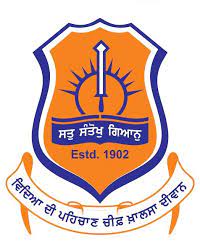BOTA SINGH (d. 1739), an eighteenth century martyr of the Sikh faith, belonged to the village of Bharana in Amritsar district. In those days of dire persecution, he along with many fellow Sikhs had sought the safety of wastes and jungles. At nightfall, he would come out of his hiding place and visit some human habitations in search of food. Occasionally he would come to Amritsar by night to have a dip in the holy tank, spending the day in the wilderness around Tarn Taran. One day he was noticed by some people who thought he was a Sikh.
DHARAM SINGH, SARDAR BAHADUR (1881-1933), Sikh philanthropist, was born at the village of Kopra, in Sialkot district, now in Pakistan, on 18 January 1881. His father, Bhai Nattha Ram, was a sahajdhari Sikh who became Nattha Singh after receiving the rites of amrit. Dharam Singh learned Gurmukhi characters at the village dharamsala from Bava Narayan Singh. He had a religious bent of mind, and could read fluently the Guru Granth Sahib before he was 8 years of age. For his primary education, he joined the Mission School, Wazirabad, later passing his matriculation from Khalsa High School, Gujrariwala. In 1901, he qualified to be a sub overseer from Thompson Engineering College, Roorkee, and got a job in Burma.
- 1
- 2




